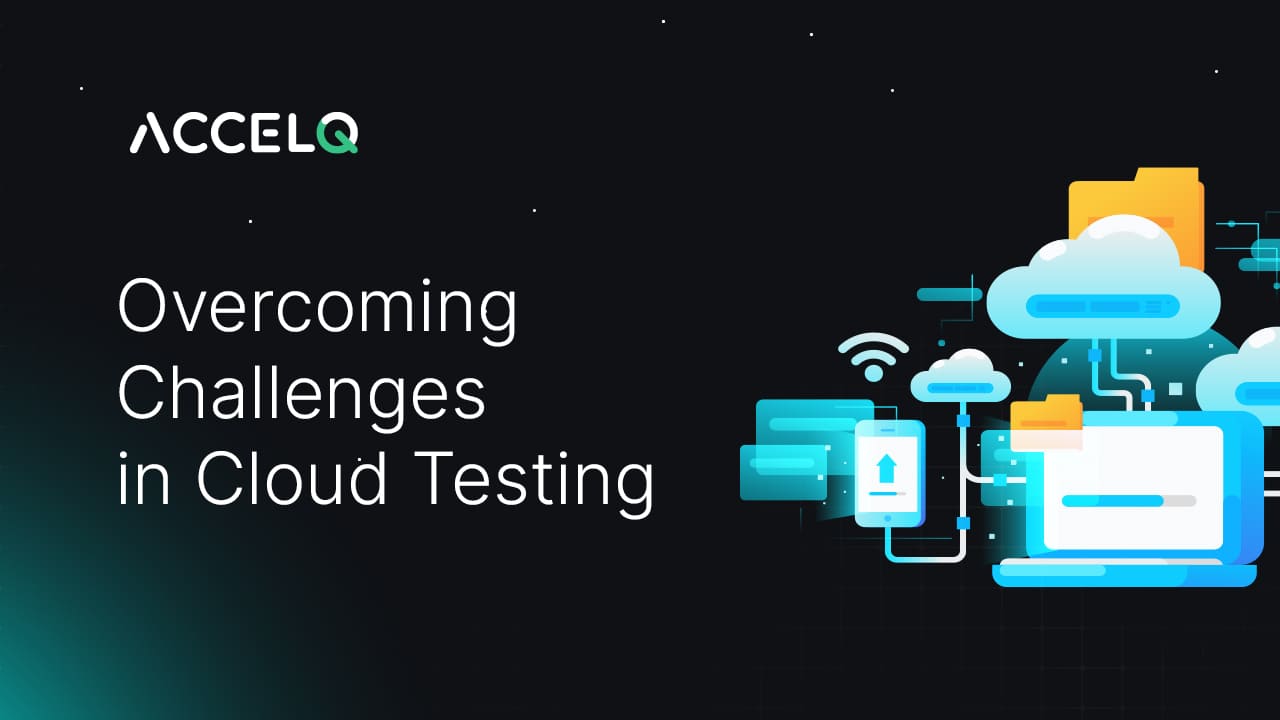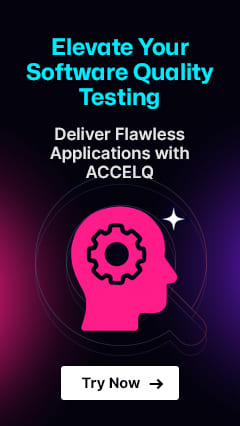Overcoming Challenges in Cloud Testing

Webservices, DevOps, applications, and testing are all moving to the cloud to drive business agility, responsiveness and improve costs. This bodes well when we consider that the cloud has been instrumental in moving us from the industrial age to the age of information accessibility. However, cloud testing becomes essential to deliver on the promises made by the cloud.
The Major Challenges in Cloud Testing
Cloud testing refers to testing cloud resources such as SaaS offerings, the cloud architecture, the application ecosystem, etc., to determine and ensure optimal performance, security, and availability of data and minimize any downtime of the cloud platform or infrastructure.
However, cloud testing can become challenging because it needs dedicated infrastructure. It is also vital for testing environments to be scalable to match production. Maintaining in-house testing facilities adds to the capital expenditures (CapEx) and becomes difficult to accommodate as application complexity increases.
More profoundly, some of the main challenges of testing in the cloud can be highlighted as follows:
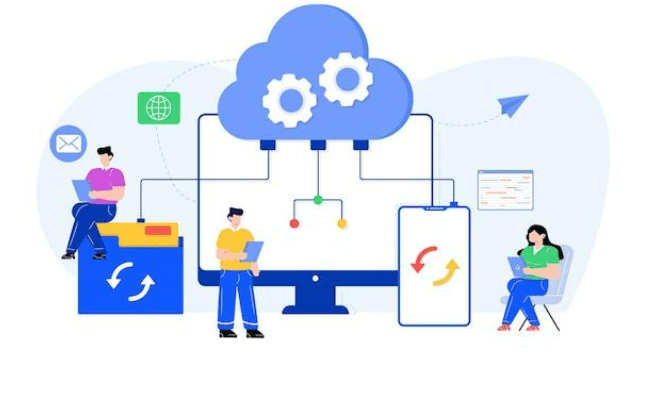
Test Environments and Components Diversity
Creating an optimal test environment for cloud testing can be a complex task as this environment has to contain specific server, storage, and network configurations. Furthermore, the environment has to contain the app configurations and test data. It is also important to test the application in an environment similar to that of the end users for the best outcomes.
Apart from that, the advent of multiple devices means that the testing spectrum must expand too. This includes testing applications on the web and mobile, different operating systems, and browser combinations. These add to infrastructure demands and can escalate costs.
The component diversity further makes cloud testing complex as they need the preparation of several test cases. Manually generating test cases, prioritizing them, and then maintaining them add to testing complexity and can lead to delivery delays.
Lack of Standardization
Testing in the cloud also has to navigate certain operational challenges. Presently, there are no standard solutions to integrate the public cloud with internal data centers. This challenge becomes more complex in the wake of multi-cloud models where enterprises use different types of clouds — public, private, or hybrid — sometimes across multiple cloud providers.
Interoperability also comes under the scanner here as data interoperability is lacking in most enterprises. This can:
- Introduce challenges if enterprises want to switch vendors
- Lead to complexity in testing owing to the lacking standardization
Security Concerns
Security concerns also top the charts when it comes to challenges in cloud testing. While cloud providers offer great security, data backup, and data recovery options, robust cloud testing is essential to make sure security breaches and security bugs do not lead to larger security issues.
At the same time, some cloud vendors are not familiar with security needs and industry standards unique to certain industries such as banking, healthcare, government agencies, etc.
Testing in the cloud needs to be more comprehensive and have a large testing footprint to prevent vulnerabilities and security bugs. Security also becomes hard to maintain in a shared environment. As a result, it demands constant monitoring and compliance with security standards such as SOC2, GDPR, and CCPA.
Ensuring Compliance
Addressing the governance and regulatory demands can add complexity to cloud testing. In an ever-changing regulatory and compliance landscape, cloud testing strategies have to account for the protection of the information being processed.
Safeguarding confidential data, abiding by governing rules and regulations such as the Sarbanes-Oxley Act of 2002 (SOX), HIPPA, Payment Card Industry Data Security Standard (PCI DSS), etc., according to industry needs become essential.
Your business guide to codeless test automation
Ready to execute continuous test automation without writing a single code?
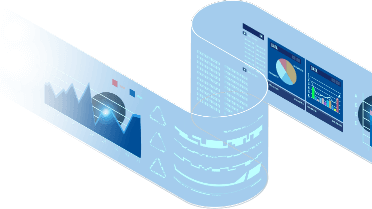
The Dearth of Resources & Expertise
The cloud testing ecosystem has to address many issues around specific configurations of the server, network, and storage. There are several moving parts in the system with multiple vendors, cloud environments, networks, operating systems, and many other such components that need to be accounted for during cloud testing.
The use of virtualization and containers is also expanding to test different aspects of the cloud, and the test data diversity is also increasing. Navigating cloud testing thus needs deep knowledge and expertise of how these moving parts operate and influence each other.
Most enterprises, however, do not have the resource ecosystem to develop the test environments, test cases, etc. needed for robust cloud testing.
How To Overcome These Challenges?

Enterprises can address these cloud testing challenges by:
Identifying the Most Relevant Cloud Services
Since different cloud vendors have different service offerings, the first step to achieving cloud success is identifying the most relevant cloud services. Understanding business needs and aligning those with the most suitable cloud services become important to simplify and accelerate cloud testing.
Moreover, it's essential to identify resource allocations, expectations of application responsiveness, etc., to make the most of the cloud.
Develop a Testing Strategy
Having a clearly defined cloud testing strategy is essential for testing success. A clearly defined cloud testing strategy takes an assessment of the cloud architecture and the resources that support business efforts.
That said, it must consider testing the cloud provider's IaaS or PaaS offering and conduct functional, acceptance, system verification, and interoperability tests.
Along with these, the test strategy should also have non-functional tests such as scalability testing, disaster recovery testing, and data testing to ensure quality, performance, and application availability.
Use Automated Cloud Testing Tools
Selecting and integrating the right testing tools simplify cloud testing. That said, the number of components involved and the need to test across the full IT system demands test automation. After all, manually testing the cloud can be complex, time-consuming, and error-prone owing to the sheer number of data points. The accuracy of data also determines testing outcomes and hence, needs automation.
However, not all test automation platforms are created equal. AI-powered, no-code, robust, and comprehensive test automation platforms are gradually becoming critical facilitators of test automation success. These platforms:
- Accelerate testing velocity
- Expand the testing footprint
- Simplify test development and maintenance
- Make it easier to test faster, test often, and test easily
Monitor the Outcomes
For robust cloud testing, enterprises should be able to proactively monitor testing outcomes. Testing teams must plan for optimal infrastructure usage and monitor test results to identify performance or capacity issues.
In essence, a unified test automation platform that allows testing teams to bring various types of testing together and seamlessly integrates with project management tools like Jira and Jenkins helps enterprises monitor test outcomes and easily manage continuous delivery.
Work on BIG ideas, without big work.
Simplify test automation with our Unified platform for Enterprise stack across Web, Mobile, API, Desktop & Backend

Driving Successful Cloud Testing Initiatives with ACCELQ
A robust cloud testing strategy needs an AI-powered test automation platform to capably test all the moving parts involved. A no-code platform, such as ACCELQ, helps enterprises navigate all the challenges of cloud testing. It allows them to automate testing and enables teams to manage manual test cases for functionality that may be too fluid for automation.
ACCELQ Unified test automation platform enables zero code web, API, and mobile test automation on the cloud, microservices, SSH, backend, etc., and allows testing teams to run both functional and non-functional tests with ease.
CI-driven regression suite executions, dynamic environment management, and seamless traceability and coverage make it perfect for overcoming the challenges in cloud testing.
Connect with us to see how ACCELQ can elevate the outcomes of your cloud testing initiatives and help your teams test faster.
Yuvarani Elankumaran
Technical Consultant at ACCELQ.
Yuvarani Elankumaran is a highly skilled technical consultant at ACCELQ. With over a decade of experience in the field of Test Automation, Yuvarani is a seasoned professional who is well-versed in a variety of programming languages and automation frameworks.
Discover More
 Comprehensive Guide to System Testing: Ensuring Software Excellence
Comprehensive Guide to System Testing: Ensuring Software Excellence
Comprehensive Guide to System Testing: Ensuring Software Excellence
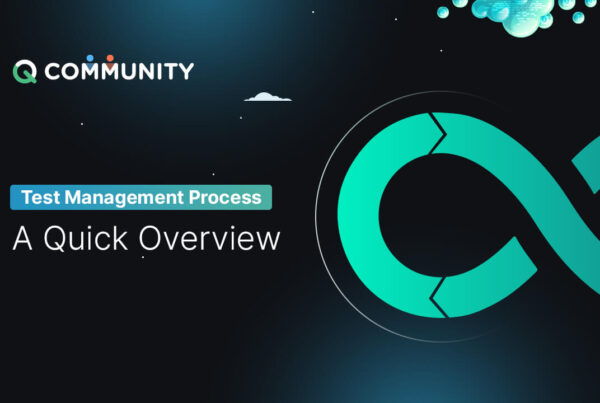 Optimizing Test Management Process For Enhanced Testing
Optimizing Test Management Process For Enhanced Testing






























